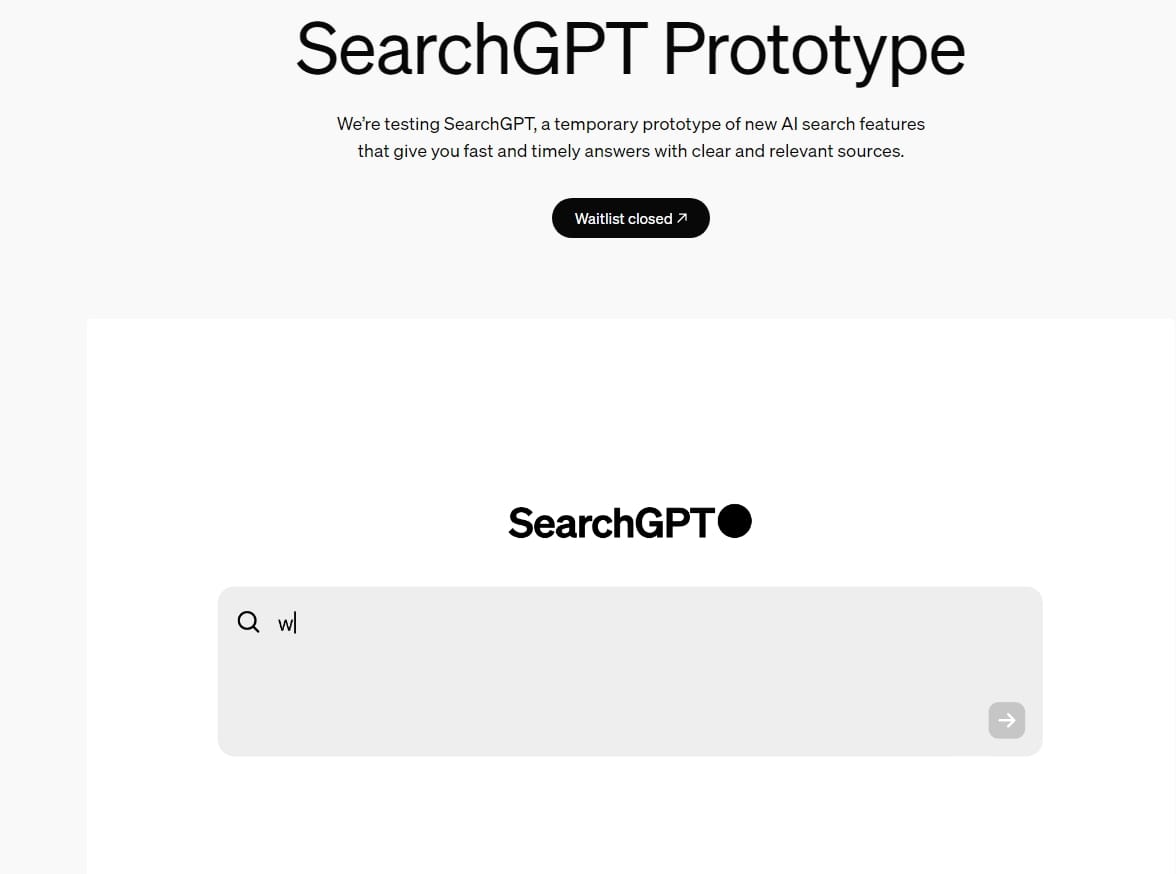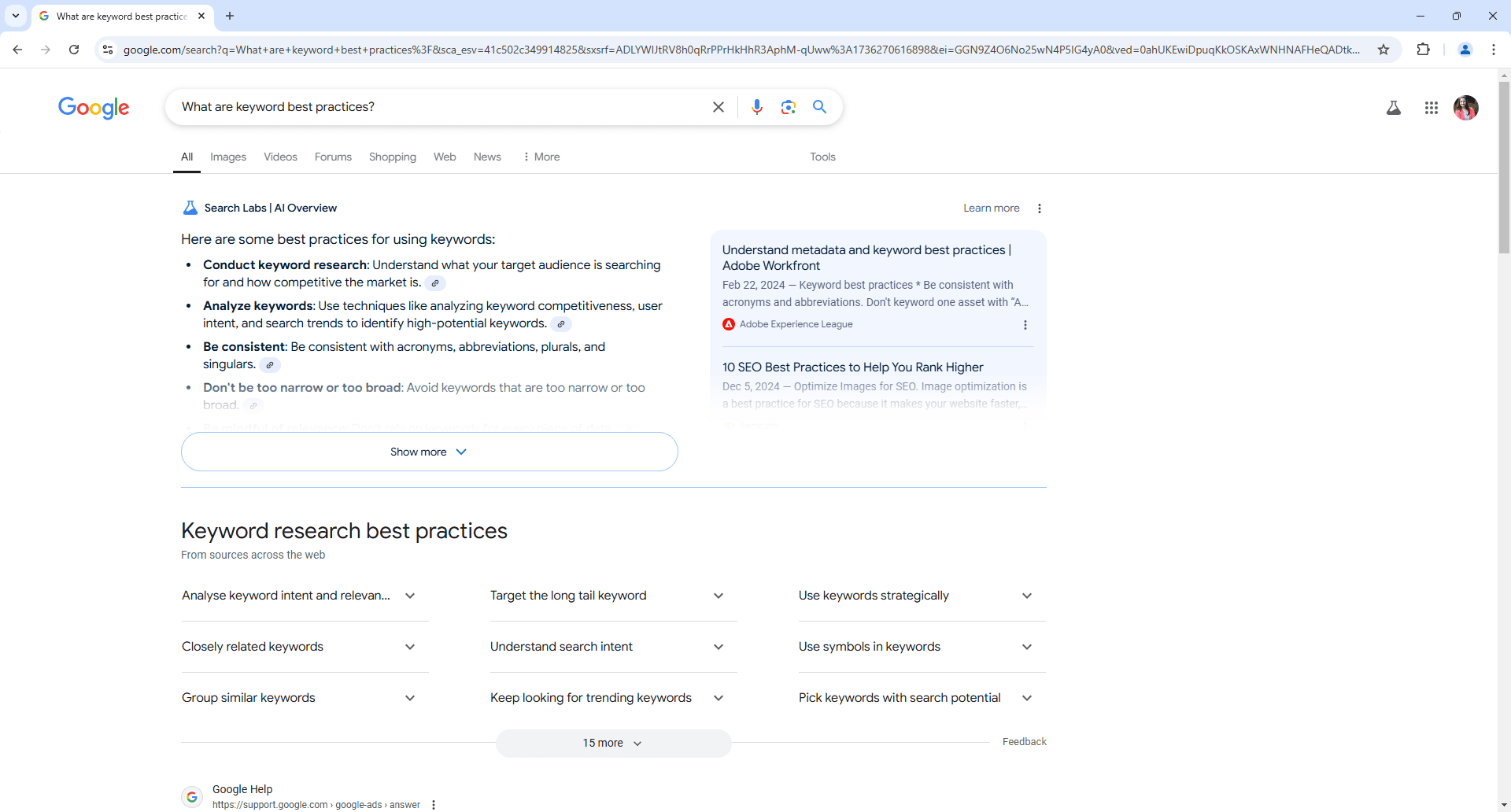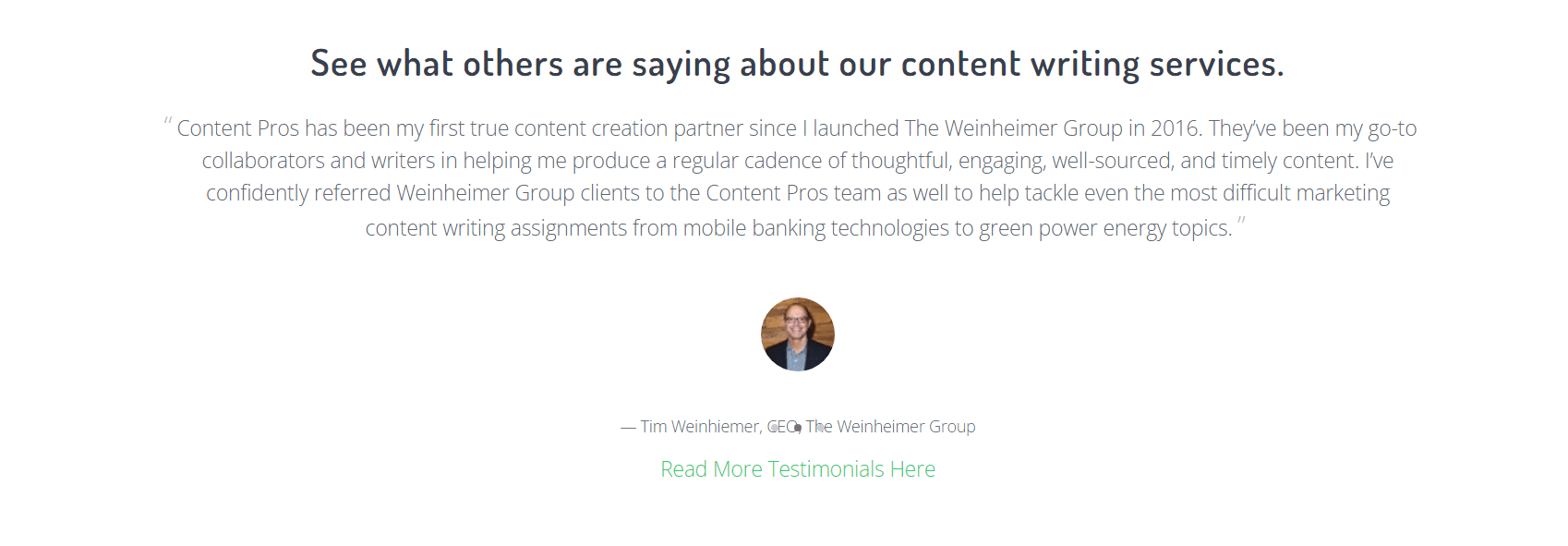Getting in front of your audience online centers around search engines and SEO. It’s been this way for years, with Google now processing nearly 8.5 billion searches every day. But the Google monopoly is chipping away and the face of search is changing — SearchGPT couldn’t have arrived at a better time.
ChatGPT, the category leader of AI content tools, introduced a new search engine last year that gives businesses new ways to gain exposure. Here’s what you need to know about SearchGPT and how to rank in search results.
What Is SearchGPT?
SearchGPT is the new search engine within ChatGPT. It combines traditional search engine features with the power of artificial intelligence, specifically generative AI.
This new search experience is changing the way people search for information online. Rather than go to Google or Bing, users can log into ChatGPT to access the new search features.

Right now, the waitlist for testing the SearchGPT prototype is closed. It’s not available to everyone just yet, even if you have a ChatGPT account.
However, that’s going to change soon, and businesses can start preparing now.
Why Optimize for SearchGPT?
ChatGPT is a highly accessible generative AI tool; users don’t need experience to use it to write content, summarize text, analyze data, or create images. The tool (and AI at large) is catching on quickly and becoming a go-to in marketers’ toolkits.
Once its search feature goes live to the masses, every search made on SearchGPT is a search not made on other search engines. It’s a whole new way for audiences to find you.
Plus, ChatGPT fills in gaps in information with data from Bing, giving you another reason not to put all your eggs in the Google basket. Spreading out your marketing and advertising efforts will help you reach more people.
Here’s what we know about SearchGPT so far and how it’s different from other search engines:
- It prioritizes quick, succinct answers to queries, while Bing and Google deliver snippets and links to explore.
- It allows users to have a back-and-forth conversation to refine their search, while other search engines require you to start a new search.
- It’s completely ad-free, so searchers can get real recommendations and not “pay to play” content.
- When a user clicks on content recommended by SearchGPT, the click has no bearing on the algorithm’s future decisions, which helps to level the playing field.
- SearchGPT allegedly does a better job of understanding the user’s intent and provides a wider variety of information and sources.
Google and Bing are adding AI-powered elements to their search experiences, too. No longer just a list of ranked websites, features like AI overviews and AI-recommended related content are becoming more common.

We’re still in the very early stages of the next era of search. The user experience will be a likely factor in helping searchers choose where to find information online, and SearchGPT is serving up an experience you won’t find on Google or Bing.
8 Ways to Rank in SearchGPT
Getting ChatGPT to recommend your business is taking a new turn with the addition of search. Let’s review some ways to optimize your content for SearchGPT.
1. List Key Takeaways in Each Blog Article
While other search engines are places of exploration, SearchGPT is short and to the point. Adding a list of key points or a table of contents at the top of your blog post helps algorithms understand your main points instantly.
This section can also offer quick, direct answers to common questions that a person might search for in SearchGPT.
2. Build Online Authority Beyond Your Website
Brand mentions, online reviews, backlinks, and guest posts can help you build trust with search engines. They help you appear more credible, an important factor since anyone can publish content online.
We already know that online authority is one of Google’s ranking factors, based on the infamous algorithm leak. Appearing in places beyond your own website can help algorithms learn who you are and establish authority, making your content a safe bet for its search results.
3. Write In-Depth EEAT Content
Expertise, experience, authority, and trust (EEAT) are key factors in search rankings. Algorithms favor content from publishers who have demonstrated a commitment to quality and know what they’re talking about.
For starters, add trust factors like online reviews, quotes, and links to authoritative sources to boost your credibility. Even a testimonial can make a difference in how others perceive you.

In general, in-depth content is seen as more authoritative than short-form content. Longer content covers a topic more completely. Consistent publishing allows publishers to cover every angle of a topic or niche, which also builds EEAT.
That said, you don’t have to only create long-form content to rank in search. Short-form works best for topics that don’t require a lengthy explanation, especially if you’re trying to answer a question succinctly. Use your best judgment on content length; the goal is to be thorough, not wordy.
4. Update Older Content
SearchGPT offers an advantage to searchers by using real-time data to provide the most timely responses. That means your content needs to be current and relevant if you want it to rank.
Do a content audit to see what’s outdated and how you can bring it up to speed. For example, you might replace outdated links, include new data or stats, add new examples and images, or optimize for new keywords.
5. Optimize for Long-Tail Keywords
Keywords are getting more competitive, making it harder for content to rank. SEO has become a feeding frenzy among businesses, and AI tools that remove some of the guesswork from the process only make it harder to rank.
Long-tail keywords offer a solid foot in the door. Because they’re longer and more detailed, it’s easier for marketers to grasp the real intent of the keyword. This can help develop content that directly and completely answers the searcher’s query.
Plus, you’ll have an exact match term for a highly specific search. Your content will closely match the search, which can make your content discoverable.
6. Use Plain, Conversational Language
SearchGPT is a large language model that thrives on human-like conversation. It allows for dialogue and aims to write responses in a way that sounds like you’re talking to a friend or colleague.
Ideally, you’ll write your own content in a similar manner:
- Make your writing clear and engaging.
- Keep sentences short and limit paragraphs to 2-3 sentences.
- Choose simple words and avoid jargon.
- Use bullets, charts, and infographics to explain key messages.
Make your content more readable by breaking up long text walls with headings and images. The more reader-friendly your content is, the more likely people (and algorithms) will read it.
7. Apply Rich Data Formats
Data schema adds structure to your content and can make it more readable by search algorithms.
For example, an eCommerce product page might have the name of a product, a description, customer reviews, pricing, and other details, and it might be well organized visually. But on the backend, these elements might confuse search algorithms if they lack proper coding.
Tools like Google Search Console and schema.org can help you add structure and enhancements to your content, making it more visible to search algorithms.
8. Follow Technical SEO Best Practices
Technical SEO might not impact your human readers, but it can make all the difference to AI algorithms. Again, it’s all about good organization: headers, clean HTML, descriptive meta tags, fast page load speed, and usability indicate quality.
Do a technical SEO audit to find hidden opportunities to improve your site’s performance. You might find that little fixes can make your content findable and more attractive to algorithms.
Optimize Your Content with Content Pros’ Expertise
The above tips to rank in SearchGPT can also apply to other search engines. Follow them and you might see your rankings, traffic, and conversions improve across the board — regardless of the referral source.
If you need help optimizing your content for the next era of search, Content Pros can apply these and other best practices to help your content stand out. From updating older content to offering complete rewrites that are search engine-friendly, our team brings a decade of experience and expertise in SEO to boost your online presence.
Get in touch and let your optimized content start working harder for you.

